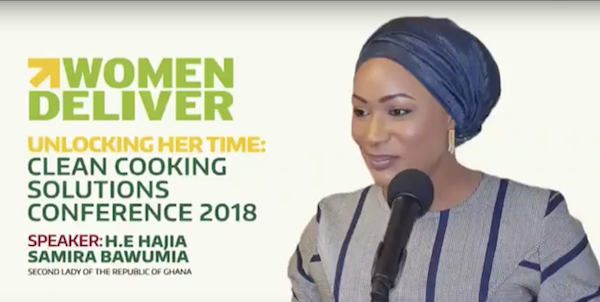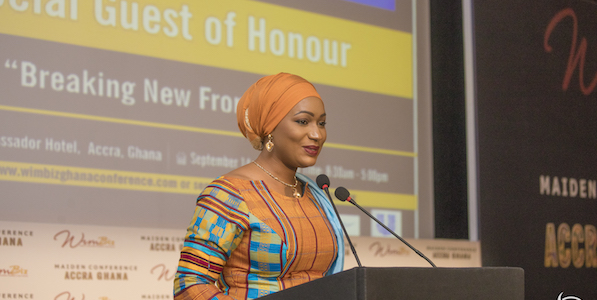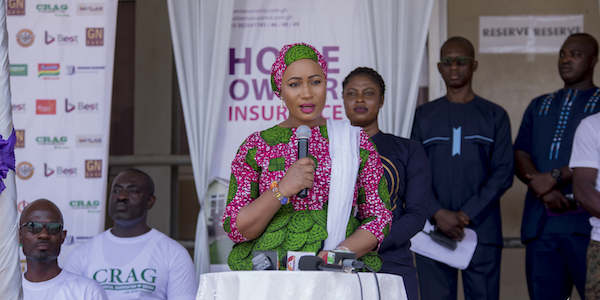THEME: PREVENTING ADOLESCENT PREGNANCY-A SHARED RESPONSIBILITY
The Chairman, Nana Boakye Yaw Ababio II, Chief of Nkwantakese, the Ashanti Regional Minister, Hon. Simon Osei-Mensah, the Director General of the Ghana Health Service, Dr. Anthony Nsiah-Asare, the Traditional Council, Nananom, Directors and Representatives of Ministries, Departments and Agencies, Representatives from Health and Development Partners, friends from the media, ladies and gentlemen.
It gives me great pleasure to be part of this occasion to deliberate on issues affecting our future generation under the theme: “Preventing Adolescent Pregnancy-A Shared Responsibility”.
According to the Ghana Demographic and Health Survey conducted in 2014, our country is characterized by a young population of adolescents and young adults, constituting 29.3% of our population, almost a third of the Ghanaian population. It is therefore imperative that we seek the interest of every adolescent in the area of sexual and reproductive health, nutrition, mental health and other health related issues which ultimately affects their growth and development.
The adolescence stage is a crucial period in the life of any individual. During adolescence, young people undergo physical and psychological changes which have implications for their social, economic and health development. Today’s adolescents complete their physical, emotional and psychological journey to adulthood in a changing and challenging world with both opportunities and dangers. It therefore provides the opportunity to lay the foundation for positive development which influences the quality of life during adulthood. However, most adolescents are exposed to risks and pressures on an increasing percentile rate, with minimal or no support.
Most of the vulnerabilities adolescents face are in the area of health or health related behavioral problems. Also, limited access to quality health service continuous to be a major challenge. Our adolescents continue to face risks associated with physical abuse, child marriages, female genital mutilation, various forms of violence including sexual and gender violence, child labour and trafficking, HIV and AIDS, and other Sexually Transmitted Infections (STIs), substance abuse, poor nutrition, intentional and unintentional injuries, Adolescent/Teenage Pregnancy and disabilities.
According to the Ghana Health Service, the adolescent pregnancy rate in the country continues to rise, with the current rate being 11.8%.In the Ashanti Region where we find ourselves today, 359 teenagers got pregnant in 2016 with 323 of them being minors. This means that minors between 10-17 years are giving birth too soon and as we all know, the children born to these young mothers are vulnerable to increased risks of sickness and death. Moreover, teenage mothers are more likely to drop out of school and also experience adverse pregnancy outcomes.
Mr. Chairman, the prevention of adolescent pregnancy goes beyond the health sector. The health and well being of the adolescent is indeed a shared responsibility and all necessary actors must endeavour to play their roles and contribute effectively to this shared effort. It is for this reason that I call on all persons: Parents and by extension the family system; teachers; religious leaders; health workers; political leaders; traditional leaders and the entire society to play their respective roles to ensure that we have a healthy and productive generation of adolescents. As we talk about teenage pregnancy, let us continue to talk about the other potential challenges our adolescents face in our homes, schools, churches, and mosques to create the safe environment for our adolescents to thrive.
We must engage and build the capacities of teachers, religious leaders, traditional leaders, the media and all other stakeholders to help address the emerging challenges our adolescents face.
There is need to create a safe and supportive environment for our adolescents and ensure access to appropriate information on their sexual and reproductive health, nutrition and mental health. We must encourage our adolescents to participate actively in programs affecting them and put effective measures in place for their protection from all forms of violence, harmful practices especially focusing on the more vulnerable such as the pre-adolescents, younger adolescents, pregnant adolescents, adolescents with disabilities and adolescents living with HIV/AIDS. We must advocate for an all inclusive Adolescent Health Services in our health facilities to ensure that issues with their health and nutrition are addressed.
In an era of globalization where massive technological advancements have made information easily accessible, adolescents need to be guided to sieve for the right kind of information that ensures they make the right choices regarding their lives, particularly when the future of many young girls and boys have been compromised if not jeopardized by the wrong choices made during adolescence. We must provide avenues on the social media platforms, television and radio stations, print media, through mobile applications, through creation of adolescent school clubs, through creation of help lines and other information channels for adolescents to be open minded, feel free and safe to ask all the questions and empower them to demand and access what is due them without fear of intimidation or chastisement.
Mr. Chairman, ladies and Gentlemen, today we launch the Adolescent Health Advocacy Week under the theme “Preventing Adolescent Pregnancy; a shared responsibility” I personally pledge my unflinching support to join the advocacy efforts to ensure that all adolescents and young people have access to accurate and comprehensive reproductive health information and services that will empower them to make healthy decisions.
Mr. Chairman, Hon. Minister, ladies and gentlemen, I crave your indulgence to announce that the 2017 Adolescent Health Advocacy Week is duly launched.
Allah Bless you All!
And Allah Bless Ghana!







